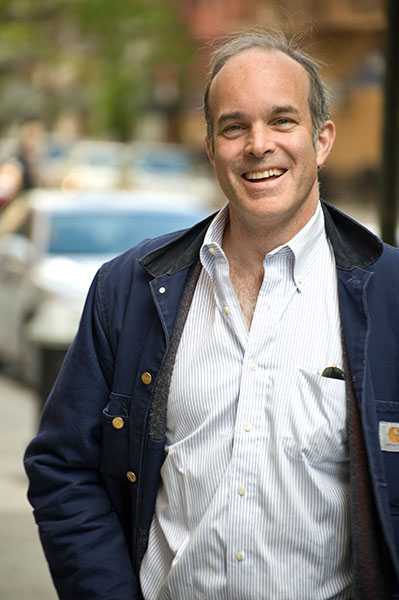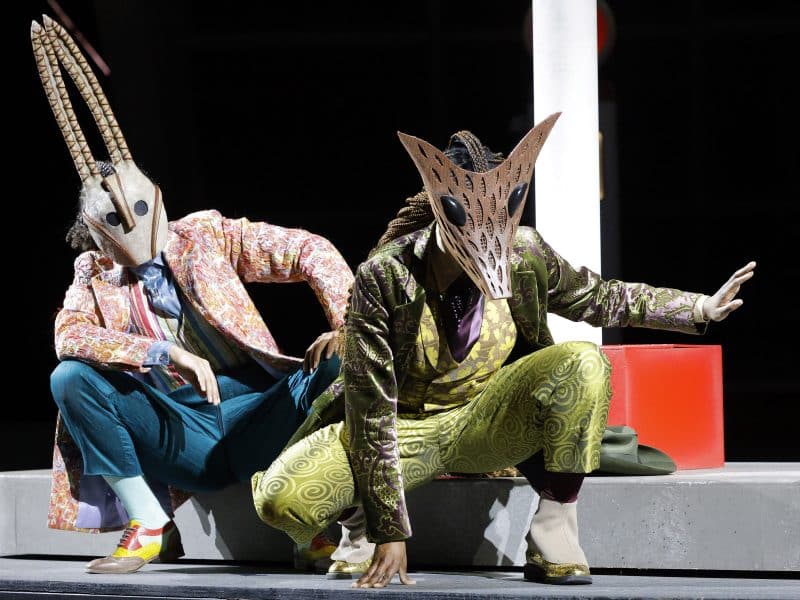Documentary director takes Detroit’s story ‘Beyond the Motor City’
Director Aaron Woolf made a documentary on Detroit and transit, only through his lens, this isn’t merely a Detroit story. It’s a story about laying the foundation for a new national economy, and we’re the stars.

Director Aaron Woolf has just started a nationwide tour promoting his PBS documentary on transit and Detroit, Blueprint America: Beyond the Motor City. Before he left, though, he was concerned Detroit would fall prey to the “Thank God for Mississippi” syndrome.
Years ago, when Woolf was away at college in Vermont, he met a kid from Alabama who razzed him with: “Thank God for Mississippi.” What? asked Woolf, who has family in Mississippi but was raised in Baltimore. The answered: “You know how Alabama is usually 49th in most of the statistics that measure prosperity and economic vitality? Well Mississippi is always 50th. So dang it if we aren’t always saying, ‘Thank God for Mississippi.”
Woolf worried a similar scenario would play out as he showed Detroit’s story. “I had this kind of fear that other cities would say, ‘Thank God for Detroit,'” he says. Thankfully, “it hasn’t been that at all.”
“I think a lot of cities can look at Detroit and instead of saying, ‘Thank God for Detroit,’ they can say ‘There are profound lessons for me,'” he says. “That was my greatest hope, and that seems to be coming true so far.”
Woolf’s tour stops in Detroit at 6 p.m. Tuesday, March 18, at Wayne State University’s Law School. There will be discussion and a screening of the documentary, which first aired nationally on PBS in February.
Woolf says that the message of his documentary is to tell a story of how decades of automobile-centric infrastructure policies have been detrimental to the nation’s economy, through the lens of what’s happened in Detroit.
“To me this film even though it is ostensibly about Detroit, it is so thoroughly about the whole country,” he says. “If you had to shrink the whole movie down into one sentence or one thing, it would be: Infrastructure choices have consequences. The way your promote people getting around has a profound impact on how you shape communities.”
‘Because we’ve had enough’
Detroit, as of late, has had no shortage of high-profile media attention, and not all of it has been well received locally (ahem, Dateline and TIME).
Woolf says even as he was making the PBS documentary, he was keenly aware of the other media reports and how Detroiters responded to them.
“The feeling of piling on was something that was really in the back of my head,” he says. “In some ways, I was in a funny position, because it’s almost impossibly seductive for people from other places to come in and take pictures of Michigan Central Station. There was a moment when I had to say to myself, wait a moment, this is an incredibly poignant image, and my story is about transportation. This is a national issue, why this train station looks like this. And that’s a much bigger story than ‘Detroit’s in decline.'”
Even while filming, Woolf got an earful from locals asking him to tell the story the right way. He tells an anecdote about a woman he “met” while filming in an area his local friends called “the Hamtramck suburbs,” the area just to the north near the Davison. “I am like sitting on the window of the car, with my elbows on the roof of the car, and my butt is embarrassingly sticking out the window. We were doing a poor man’s tracking shot and taking pictures of some particularly decrepit storefronts.
“A woman going in the opposite direction slows down her car and reaches her body almost as far out of her car as I am out of mine and yells: ‘I hope to God you are telling something positive about this city, because we’ve had enough.’
He got her message, loud and clear. “I was so taken aback. It was so shrill. I have Southern family, and when I get chastised I revert to ‘yes, ma’am and yes, sir.’ So I replied, ‘Yes, ma’am.'”
Why you won’t see ‘Infrastructure: The Musical’
He said one of the best parts of telling Detroit’s story, for him, was dispelling popularly held notions that all of Detroit’s problems really originated in the ’67 riots or the implosion of the Big Three. “It was really exciting to find great and solid evidence that Detroit’s problems pre-dated all of that,” he says. Transportation decisions made all across the country are more to blame, Woolf and his film contend, and, he says, “It’s a much less sexy story.”
“From a journalism standpoint, even trying to raise money for a movie about infrastructure, people are not very imaginative that people are going to want to sit and watch a story about infrastructure,” he says and the jokes, “the multiplex is full of infrastructure films.”
PBS and WNET in New York, he says, recognized this was a really important and relevant national story. He says the follow up conversations and tour — which have taken him to Spain, St. Louis, and Memphis so far, and will continue in Indianapolis., Minneapolis, Nashville, Buffalo, and Omaha — are also extremely important. “It’s really not about the film as much. The film is really meant to be an introduction to the conversation and not a polemic.”
So what’s next?
One striking clip Woolf uses in the doc shows footage of a vibrant downtown Detroit, back when the streetcars ran and the streets were bustling. That was so many decades ago, many adults who grew up in metro Detroit have known downtown to look like that.
“Wasn’t that awesome to see? All those people walking down Woodward — I couldn’t believe that footage either,” Woolf says. “The film was trying to say that when Detroit had public transportation it was marvelous. The streetcar system, it created this kind of vitality.”
Woolf says infrastructure choices, which generally come in times of economic distress, do make a difference. He says downtown Madrid, where he just was, has the bustle now that Detroit lost when it lost mass transit. “If there’s one regret I have, it is that the film is so sunny bunny about Spain, and as we know Spain is in deep economic straits right now … But the question is that when this crisis ends — as we know they all do — who is going to be better positioned to build the next economy?”
Woolf says he’s not sure what’s next for him, professionally, after the tour, but he’s got a thing for Detroit. To hear him speak, which you’ll be able to at the event this week, that is quite clear. He hopes to keep following the city’s story, he says, at is unfolds.
The director sees potential in our fair city. At the end of the film, Woolf closes with a segment that imagines a future Detroit that has shed the transit “monoculture,” as he calls it, and instead embraced a bounty of transit options. He also sees the opportunity for the entire country to take seriously finding infrastructure solutions that will keep our cities vibrant.
“We have an opportunity to do something that really only happens once in a generation,” he says. “You may talk about right-sizing the city, but I’m talking on a national scale, we can lay the foundation for our new economy.”
Clare Pfeiffer Ramsey is editor of Model D. Send feedback here.
Woolf will appear at a special screening of his documentary at 6 p.m. Tuesday, May 18, at the Wayne State University Law School Auditorium, 471 W. Palmer, in Detroit. The event is free and open to the public. It’s sponsored by Transit Riders United and Wayne State.
You can find clips from the Beyond the Motor City documentary here. Here’s one of them:




